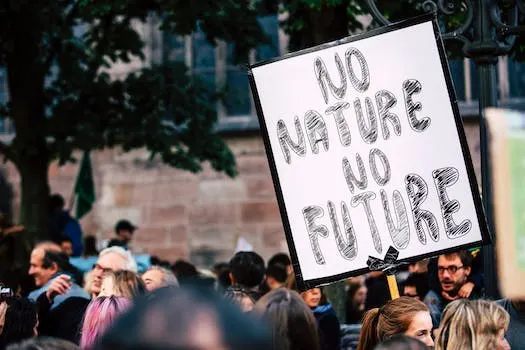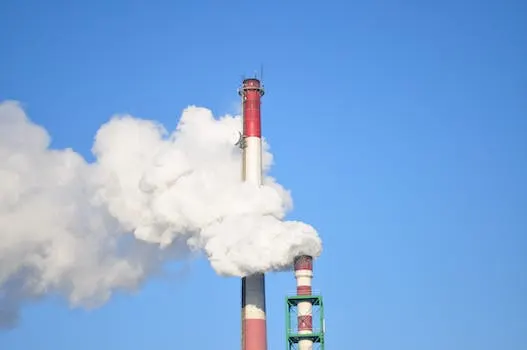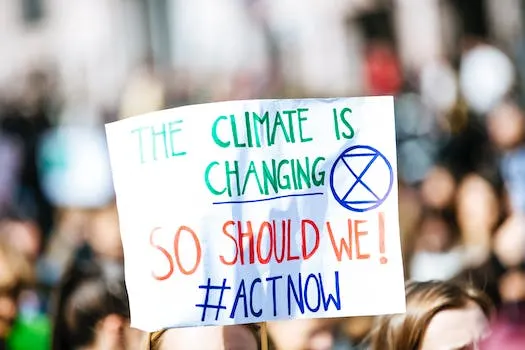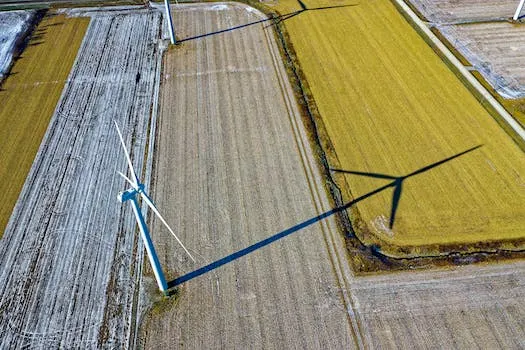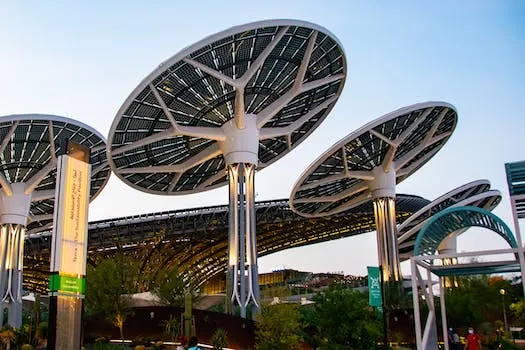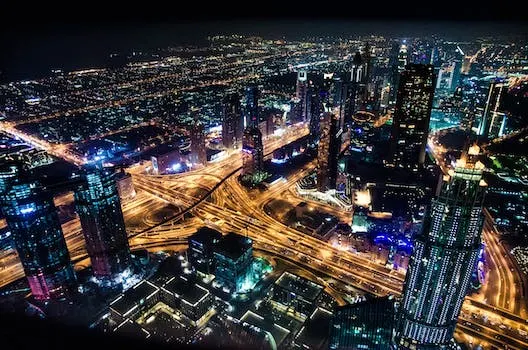
What is a Low-Carbon Economy?
The world is facing a climate crisis, and the need for a shift to a low-carbon economy has become increasingly urgent. But what exactly is a low-carbon economy? A low-carbon economy is one that reduces emissions from fossil fuels and increases the use of clean energy sources such as wind power. This transition away from fossil fuels will require major changes in the energy sector, including substantial reductions in their use and increased investment in carbon-free solutions. Goal 13 of the United Nations Sustainable Development Goals calls for urgent action to combat Climate change and its impacts, including international cooperation to help developing countries move toward a low-carbon economy.
At the core of this challenge lies an important question: how can we transition all sectors of our global economy away from fossil fuels while still meeting our energy needs? To do this, we'll need to invest in renewable sources like wind power that are both cost effective and carbon free. We must also create incentives for businesses to reduce their emissions by investing in green technologies such as electric vehicles or solar panels. Additionally, governments must provide support for research into new technologies that can help us achieve our goals faster while limiting global warming.
China plays an important role when it comes to transitioning towards a low-carbon economy; without successful implementation there, achieving global climate goals will be impossible. Addressing the climate crisis requires immediate action on all fronts - from individuals making small lifestyle changes through to governments implementing large scale policies - if we are going to have any chance at creating a more sustainable future for generations ahead.
What is a Low-Carbon Economy?
A low-carbon economy is one that is based on the use of clean energy sources and technologies that reduce emissions from fossil fuels. The largest source of these emissions comes from the combustion of fossil fuels, which when burned to produce energy, cause harmful greenhouse gas emissions such as carbon dioxide. Renewable energy, often referred to as clean energy, comes from natural sources or processes that are constantly replenished. Examples include solar power, wind power and hydroelectricity. Using renewable energy can help to reduce energy imports and reduce fossil fuel use, which is the largest source of U.S. carbon dioxide emissions. Increasing the efficiency of existing fossil fuel-fired power plants by using advanced technologies and substituting less carbon-intensive fuels can also help in reducing emissions from these plants.
The shift to a low-carbon economy has many potential benefits for both people and planet alike; it could significantly reduce global emissions from fossil fuels while providing access to reliable electricity for all people around the world without relying on finite resources like oil or coal reserves. Additionally, renewable energies are often cheaper than traditional forms of electricity production in terms of cost per kilowatt hour produced over time due to their lack of fuel costs associated with them; this could lead to lower electricity bills for consumers in countries where renewable energies are adopted at scale. Finally, transitioning away from a reliance on finite resources like oil or coal reserves would provide greater economic security by reducing dependence on foreign suppliers who may be subject to price fluctuations due to geopolitical events or other factors beyond our control.
In conclusion, transitioning towards a low-carbon economy powered by renewable energies has many potential benefits for both people and planet alike; it could significantly reduce global emissions while providing access to reliable electricity at lower costs than traditional forms of production over time due its lack of fuel costs associated with them as well as provide greater economic security by reducing dependence on foreign suppliers who may be subject to price fluctuations due geopolitical events or other factors beyond our control.
The Benefits of a Low-Carbon Economy
The shift to a low-carbon economy has the potential to bring about many benefits for the environment, economy, and society. Reducing global emissions from fossil fuels would be a major step in decreasing the overall impacts of climate change. Additionally, this shift could create jobs in the renewable energy sector while also helping to reduce energy costs for consumers. Furthermore, it could help reduce air pollution and improve public health by reducing energy poverty in developing countries.
The challenge of transitioning to a low-carbon economy is becoming increasingly urgent as climate scientists argue that emission reductions must be rapid and deep with a goal of limiting global warming. McKinsey research offers an insight into how this transition will affect demand, capital allocation, costs and jobs on a global scale as we move towards net-zero emissions. It is well known that distorted prices such as fossil fuel or water subsidies increase GHG emissions, pollution and other environmental damage; therefore financial resources are needed to address climate change both through reducing emissions and promoting adaptation to existing impacts. The United States stands to lose economic advantages from its oil and gas production without commensurate reduction in GHG emissions; however there are still many potential benefits from transitioning away from fossil fuels towards renewable sources of energy such as job creation within the renewable sector along with reduced consumer energy costs due to increased efficiency gains over time.
A low-carbon economy has the potential not only reduce emissions but also create a more sustainable future for everyone by improving public health outcomes through reduced air pollution levels while also providing access to affordable clean energy sources which can help alleviate poverty in developing countries around the world. With sound investments into green technologies we can make sure that our planet remains habitable for generations ahead while at same time creating new opportunities within our economies which will benefit us all now and into future years ahead.
How Can We Create a Low-Carbon Economy?
Creating a low-carbon economy is essential for reducing the impacts of climate change. To achieve this, we must shift away from fossil fuels and towards clean energy sources such as solar, wind, and hydroelectricity. Additionally, governments and businesses can implement policies and regulations that incentivize the use of Renewable energy sources and promote energy efficiency. This requires collaboration between all stakeholders—from individuals to businesses to governments—to create the necessary changes in our energy systems.
Renewable energy sources such as wind and solar are becoming increasingly popular due to their ability to provide electricity with little to no greenhouse gas emissions at a lower cost than traditional fossil fuels. The global transition away from fossil fuels by 2050 requires efficient conversion technologies, electrification of transportation systems, increased use of renewables, nuclear power generation, hydropower generation, maintenance of ecosystems for carbon sequestration purposes as well as improved energy efficiency measures. All these measures contribute not only to climate change mitigation but also disaster risk reduction. Achieving a low-carbon economy requires collective action from all stakeholders in order to create systemic changes in our current energy systems that will lead us towards a more sustainable future.
Conclusion
In conclusion, transitioning to a low-carbon economy is essential for creating a more sustainable future. Renewable energy sources such as wind and solar are readily available and emit little to no greenhouse gases. This shift away from fossil fuels will reduce global emissions and create millions of jobs in the clean energy sector. Additionally, reducing tailpipe emissions from the transportation sector and boosting car efficiency can help limit global warming. With collective action and commitment, we can make the necessary changes in our energy systems to create a low-carbon economy that will benefit us all.

